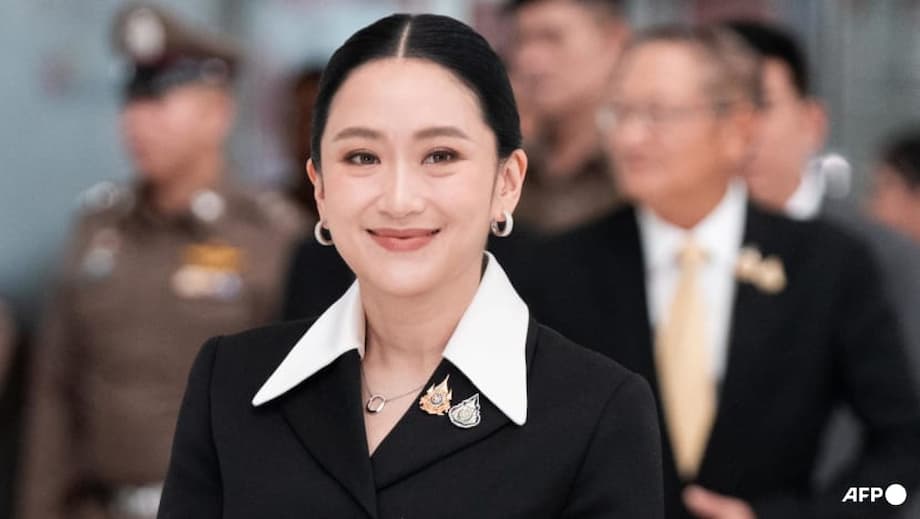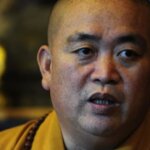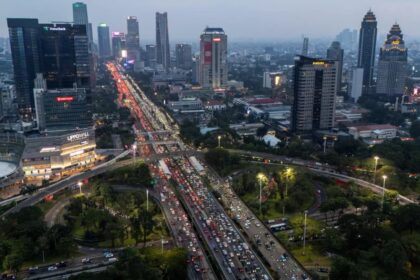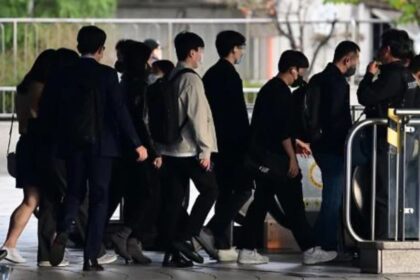Thailand’s Prime Minister Paetongtarn Shinawatra on Trial: A Nation at a Crossroads
Thailand stands at a pivotal moment as its suspended Prime Minister, Paetongtarn Shinawatra, faces a Constitutional Court verdict that could not only end her tenure but also reshape the country’s political landscape. The case, rooted in a leaked phone call with former Cambodian leader Hun Sen during a tense border dispute, has reignited deep divisions within Thai society and thrust the powerful Shinawatra family back into the spotlight. The outcome, expected on August 29, 2025, will have far-reaching consequences for Thailand’s fragile democracy, its struggling economy, and the future of the Shinawatra political dynasty.
- Thailand’s Prime Minister Paetongtarn Shinawatra on Trial: A Nation at a Crossroads
- How Did the Crisis Begin?
- Legal and Political Fallout: Ethics, Integrity, and the Power of the Courts
- What Are the Allegations Against Paetongtarn?
- Inside the Courtroom: A Closed-Door Drama
- Political Stakes: What Happens If Paetongtarn Is Removed?
- The Shinawatra Family: Survivors or Spent Force?
- Public Reaction and the Road Ahead
- In Summary
How Did the Crisis Begin?
The controversy erupted in June 2025, when an audio recording of a private conversation between Paetongtarn and Hun Sen was leaked online by the Cambodian leader himself. The call, intended to defuse escalating tensions along the Thai-Cambodian border, instead became a lightning rod for criticism at home. In the recording, Paetongtarn addressed Hun Sen as “uncle” and referred to a senior Thai military commander as her “opponent.” These remarks, seemingly deferential to Cambodia and critical of Thailand’s own military, infuriated conservative lawmakers and segments of the public.
Thailand and Cambodia have a long history of border disputes, with the most recent flare-up leading to deadly clashes in July 2025. Over five days of fighting, more than 40 people were killed and hundreds of thousands displaced. The leaked call, coming at the height of these tensions, was seen by critics as undermining national interests and the authority of the Thai military, which remains a powerful force in the country’s politics.
Paetongtarn, the 39-year-old daughter of former Prime Minister Thaksin Shinawatra, apologized for her remarks, insisting they were part of a negotiation strategy aimed at avoiding conflict and loss of life. “I had no intent to do it for my own interest. I only thought about how to avoid chaos, avoid fighting and to avoid loss of lives. If you listened to it carefully, you’d understand that I didn’t have ill intentions,” she told reporters. Nevertheless, the damage was done.
Legal and Political Fallout: Ethics, Integrity, and the Power of the Courts
The uproar over the leaked call quickly escalated into a full-blown political crisis. A key conservative partner in Paetongtarn’s ruling coalition withdrew in protest, nearly collapsing her government. Conservative senators, seizing on the controversy, filed a petition with the Constitutional Court accusing Paetongtarn of breaching constitutional provisions that require ministers to uphold integrity and ethical standards.
On July 1, 2025, the Constitutional Court voted 7-2 to suspend Paetongtarn from her duties as Prime Minister while it considered the case. The court’s decision was swift and decisive, reflecting its growing role as an arbiter of political disputes in Thailand. In recent years, the court has removed several prime ministers and dissolved dozens of political parties, often at the behest of conservative forces opposed to the Shinawatra family and their allies.
Paetongtarn remains in the cabinet as Minister of Culture following a reshuffle, but Deputy Prime Minister Suriya Juangroongruangkit has taken over as acting head of government. The court banned any reporting of the closed-door testimony, citing national security concerns, and prohibited participants from disclosing details that could mislead the public.
Her testimony, delivered on her 39th birthday, was accompanied by that of Chatchai Bangchad, Secretary-General of the National Security Council, who was called as a witness in her defense. The court has scheduled closing arguments for August 27, with the final verdict due on August 29.
What Are the Allegations Against Paetongtarn?
The core of the case against Paetongtarn is the accusation that she failed to “stand up for the country” during her conversation with Hun Sen. By addressing the Cambodian leader in familial terms and criticizing a Thai military commander, her opponents argue, she undermined Thailand’s position and the dignity of its armed forces. The petitioners claim this constitutes a serious ethical breach and a lack of manifest honesty and integrity—grounds for removal under Thailand’s constitution.
Supporters of Paetongtarn, including acting Prime Minister Phumtham Wechayachai, argue that her actions were motivated by a desire to prevent bloodshed and protect Thai citizens. They contend that the leaked call, while politically damaging, did not compromise national security or violate any laws. Paetongtarn herself has maintained that her remarks were a negotiating tactic, not an improper offer of favors or a betrayal of national interests.
The case has drawn comparisons to the ousters of her father, Thaksin Shinawatra, and her aunt, Yingluck Shinawatra, both of whom were removed from office—Thaksin by a military coup in 2006 and Yingluck by a Constitutional Court ruling in 2014. The Shinawatra family’s political fortunes have long been shaped by a bitter struggle with Thailand’s conservative elite, the military, and the so-called “deep state.”
Inside the Courtroom: A Closed-Door Drama
On August 21, Paetongtarn appeared at the Constitutional Court in Bangkok, dressed in a black business suit and accompanied by her top adviser, Prommin Lertsuridej. She smiled and greeted reporters, but the atmosphere was tense. The hearing was held behind closed doors, with no audio or video recordings permitted. The court cited national security concerns and warned against the dissemination or distortion of testimony details.
According to local media, the court also heard from representatives appointed by the Senate, including military and police officials. Both sides were given the opportunity to present their cases and cross-examine witnesses. The court’s decision to keep the proceedings confidential has fueled speculation and debate, with some critics arguing that transparency is essential in such a high-stakes case.
Observers note that the Constitutional Court has a track record of removing prime ministers for alleged ethical breaches, often on grounds of lacking “manifest honesty and integrity.” Of the prime ministers brought before the court in recent years, only General Prayuth Chan-ocha, the former coup leader, survived the process. This history has led many to doubt Paetongtarn’s chances of surviving the court’s scrutiny.
Political Stakes: What Happens If Paetongtarn Is Removed?
If the court rules against Paetongtarn, her entire cabinet will be dismissed, and the ruling coalition will be forced to select a new prime minister. The Pheu Thai Party, which leads the government, is expected to nominate Chaikasem Nitisiri, a 76-year-old former Justice Minister and current adviser to Paetongtarn. However, with the coalition holding a razor-thin majority in parliament—just 14 seats above the opposition—the path forward is uncertain.
Under Thailand’s constitution, a prime ministerial candidate must secure more than half of the votes in the 492-member parliament. With coalition partners defecting and opposition parties emboldened, the government could face a vote of no confidence or even an early dissolution of parliament. Some analysts suggest that a caretaker prime minister could be appointed to oversee new elections, which are otherwise scheduled for mid-2026.
The crisis comes at a time of economic fragility for Thailand. The country is grappling with weak growth, high household debt, and concerns about policy continuity. Political instability has further eroded investor confidence and complicated efforts to revive the tourism sector, a key driver of the economy.
The Shinawatra Family: Survivors or Spent Force?
The Shinawatra family has dominated Thai politics for over two decades, surviving two military coups, multiple court rulings, and relentless opposition from conservative elites. Thaksin Shinawatra, the family patriarch, remains a polarizing figure. After being ousted in 2006, he spent years in self-imposed exile before returning to Thailand in 2023. He now faces his own legal battles, including a high-profile lese-majeste case that could see him jailed for up to 15 years.
Paetongtarn’s rise to power was seen by many as a continuation of the family’s political legacy. Her appointment as Thailand’s second female prime minister and the youngest in the country’s history was hailed as a sign of renewal for the Pheu Thai Party. However, her approval ratings have plummeted amid the current crisis, falling from over 30% in March to just 9% in recent polls.
Some analysts believe that the conservative establishment, wary of the progressive opposition, may still prefer to keep the Shinawatra family in play as a counterbalance. As Olarn Thinbangtieo, a political science lecturer at Burapha University, observed:
The conservative camp has chosen Thaksin. Chaikasem would be picked as a short-term prime minister and dissolve parliament when the timing is right.
Others, however, see the court case as part of a broader strategy of “legal warfare”—using the judiciary to remove political opponents without resorting to military coups. This tactic has been used to dissolve reformist parties and sideline rivals, raising questions about the health of Thailand’s democracy.
Public Reaction and the Road Ahead
The leaked phone call and subsequent court case have polarized Thai society. Thousands of protesters have taken to the streets in Bangkok, demanding Paetongtarn’s resignation or expressing support for her embattled government. The political crisis has also strained relations with Cambodia, complicating efforts to resolve the border dispute and restore stability in the region.
Paetongtarn’s supporters argue that she is being unfairly targeted for political reasons, while her critics see her actions as evidence of poor judgment and a lack of loyalty to the nation. The Constitutional Court’s verdict, whatever it may be, is unlikely to resolve these underlying tensions.
Meanwhile, the Shinawatra family’s legal troubles continue to mount. Thaksin’s lese-majeste trial is set to conclude just days before the court rules on Paetongtarn’s fate. If both are found guilty, it could mark the end of the family’s political dominance and open the door to new actors in Thai politics.
For now, Thailand waits. The outcome of the court case will determine not only the future of its prime minister but also the trajectory of its democracy, its economy, and its place in a rapidly changing region.
In Summary
- Prime Minister Paetongtarn Shinawatra is suspended and faces a Constitutional Court verdict on August 29, 2025, over a leaked phone call with Cambodia’s Hun Sen.
- The case centers on allegations of ethical breaches and lack of integrity, with critics accusing her of undermining Thailand’s military and national interests.
- The court’s decision could remove her from office, forcing the ruling coalition to select a new prime minister amid a fragile parliamentary majority.
- The crisis has reignited deep divisions in Thai society and raised concerns about the use of the judiciary as a political weapon.
- The Shinawatra family, long a dominant force in Thai politics, faces simultaneous legal battles that could end their influence.
- Thailand’s political future remains uncertain, with potential for early elections and continued instability.












